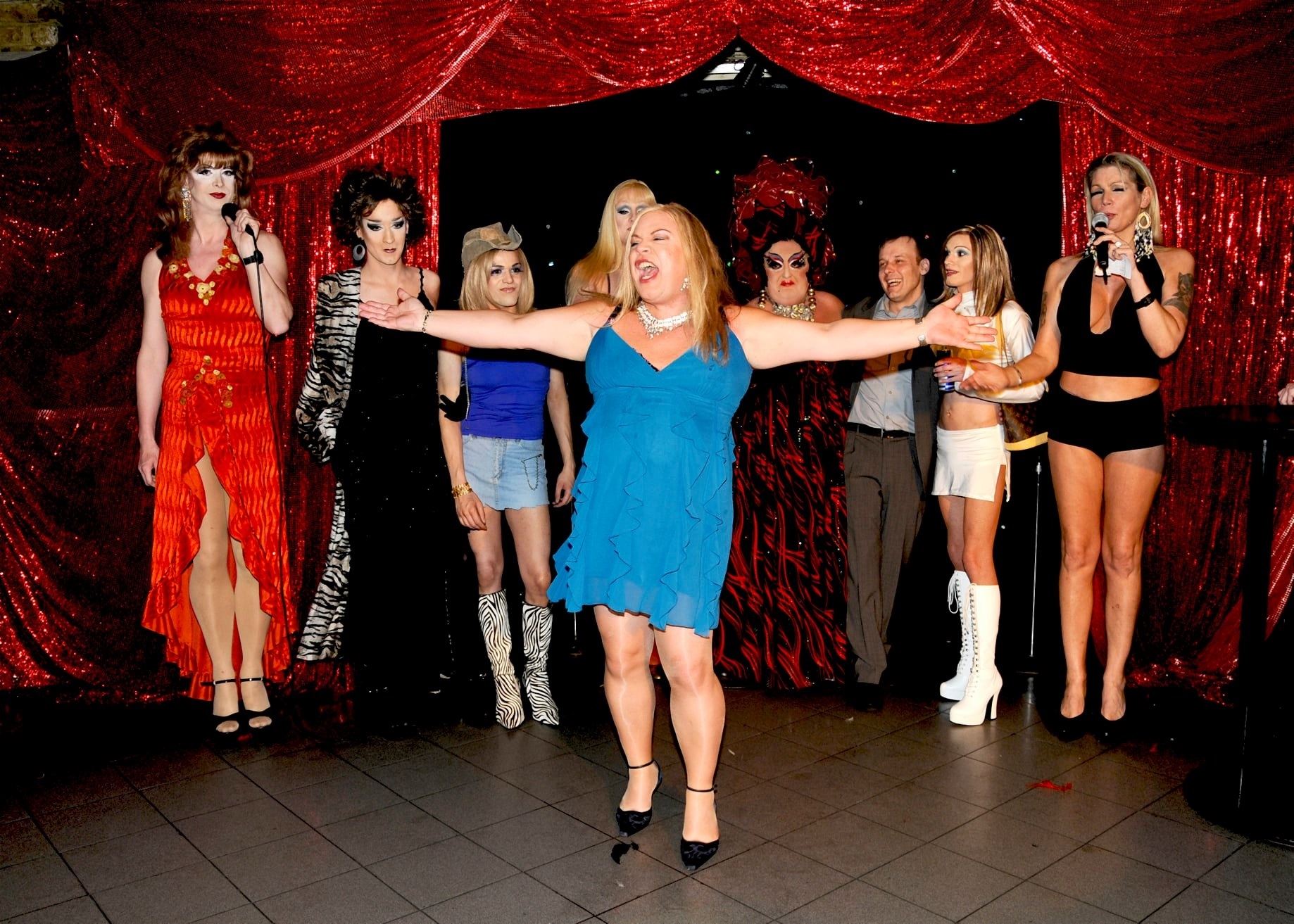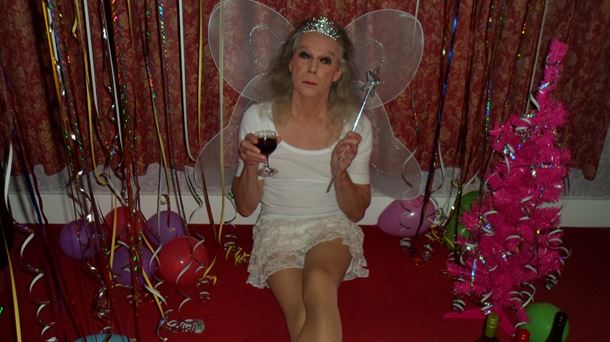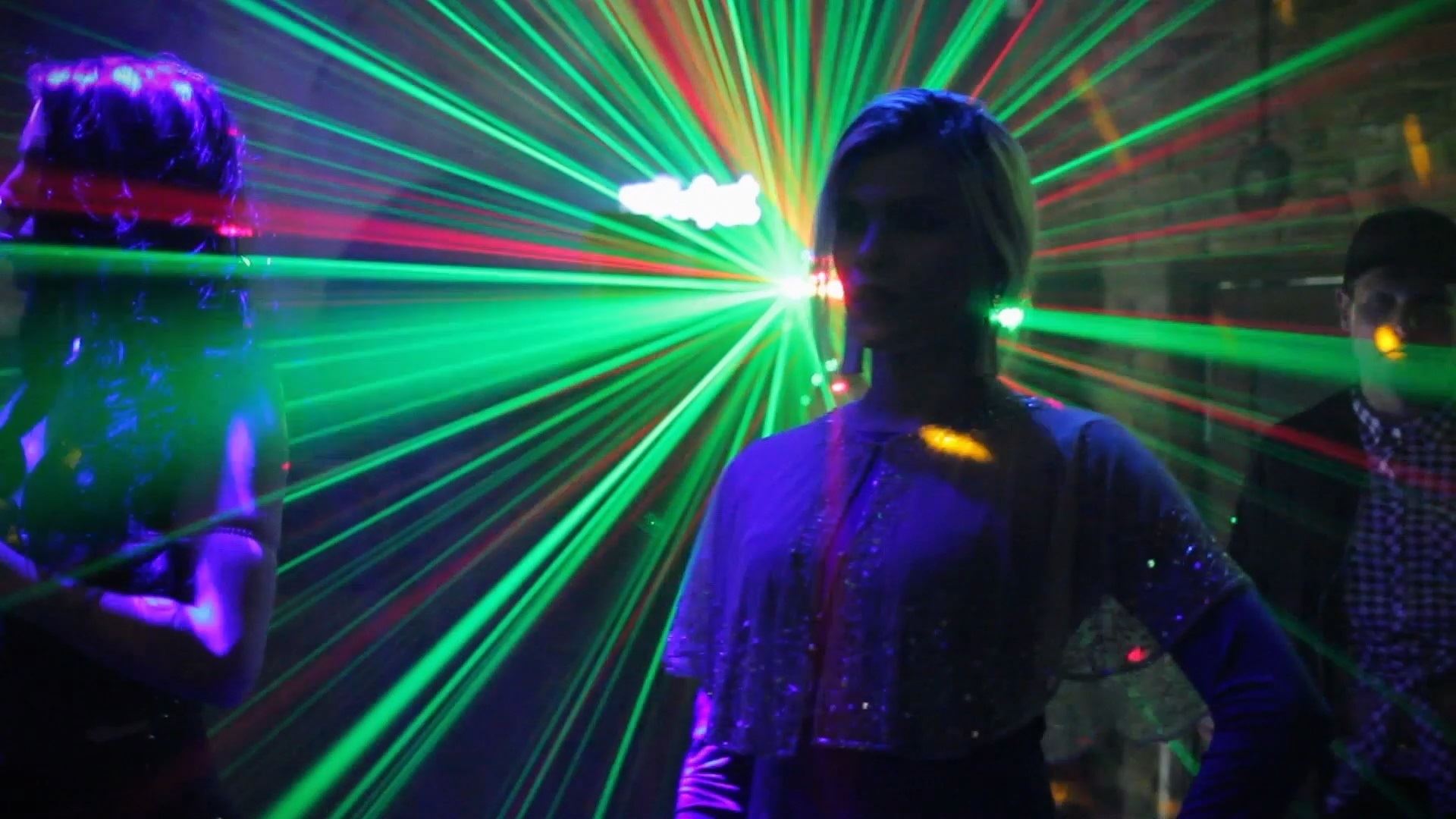Izaskun Arandia: “I would like the public to enjoy and learn as much as I have”
Euskaraz irakurri: Izaskun Arandia: “Nik filma egiten disfrutatu eta ikasi dudana publikoak disfrutatu eta ikastea nahiko nuke”
The WayOut nightclub, a nightclub for transgender girls and respectful people in general, was inaugurated in London in 1993, and therefore celebrates 30 years of offering, despite numerous difficulties, a space for each person to show themselves as is.
In the film “My Way Out”which opens in theaters this Friday, March 31, coinciding with Trans Visibility Day, the filmmaker Izaskun Arandia (Tolosa, 1972) has condensed the history and stories that the venue keeps in one hour, through testimonials and images archive.
We speak with the director.
How did you find out about The WayOut club? What caught your attention about this “safe sanctuary” to decide to bring its story to the screen?
In 2016, while I was in the documentation phase for another project together with Yogurinha Borova (this project ended up becoming the webseries “Ni Naiz Naizena”), Yogurinha herself explained to me that this very special disco existed in London and that it was already doing time that I dreamed of one day knowing the WayOut.
The next time I went to London, I contacted the owner of the WayOut, Vicky Lee, and turned up there on a Saturday night. That same night I thought that both Vicky and the disco deserved a documentary.
I found it to be a very special place: I saw people dancing and socializing with joy, freedom and comfort, and I immediately realized that it was all due to Vicky. It is she who has ensured that it remains a safe place for trans people for 30 years.
We quickly began developing the documentary “My Way Out”.
After deciding what you were going to tell, you defined how to do it. Why did you decide that there would be no narrator and that archive images, testimonials from the protagonists and current images of the club would be interspersed?
It was clear from the beginning that he wanted the protagonists to tell their stories and experiences. I took the role of spectator, and later, as director, my job has been to show in the film and transmit the teachings received.
In “My Way Out” we carry out a retrospective exercise in which we review the 30 years of the disco, based on the current venue. Therefore, it was very important to use archive images to show the evolution of the premises.
Through the interviews, the protagonists have been able to tell their experiences in the first person, which I think establishes an emotional connection with the audience.

‘My Way Out’
Both the crowdfunded film “My Way Out” and The WayOut club itself are popular projects. What have been the main obstacles and supports to bring the film to the screens?
The greatest push was given to us by the campaign of crowdfunding which we launched at the beginning. It showed us that the public wanted to see and support this film. Thanks to this funding we were able to make the first trips to London and the first shoots.
From there, my co-producers and my own production company have had to self-finance everything, since we have not received any public subsidy.
Another big stumbling block was the pandemic. We had to suspend the first shoot, which we had planned for August 2020, because the disco closed and we couldn’t travel for a long time.
In addition to the local itself, there are five main protagonists: Vicky Lee, Lesley, Kam, Geri and Andie. How would you briefly define each of them?
VICKY LEE (68)
Creator of the WayOut club. She is the soul of the local, artist and MC. The mother superior of the club. She identifies as an “inbetweenie”. Through Vicky, we have delved into the three decades of history of the WayOut.
LESLEY (67)
She is a cis person, and Vicky’s wife. She experienced the transition from this in a very difficult and confusing way. Through therapy and deep love, they have managed to overcome the crisis and are still happily together 50 years later.
ANDIE (69)
He tells us about the mental problems he has left behind since he started going to the WayOut. Her gender expression is sometimes masculine and other times feminine.
GERI (40)
Singer born in the Philippines. She debuted as a singer in England, at the WayOut nightclub. Her father beat her up because of her sexual identity and her gender. She wants to be accepted like any artist.
KAM (42)
Born in England, she is of Indian origin. Her culture led her to reject her true identity. Kam tells us about her medical transition, and she describes her trans life in her film as a positive and wonderful experience.

Andie, ‘My Way Out’
The film has already made its way since you released it in the past Zinemaldia. What response have you received? What do you think of its protagonists?
It has had a great reception at the festivals that have chosen it, and people have liked it a lot. Despite telling hard stories, it is a very positive and joyful film. It’s packed with dance music, and the audience leaves the theater satisfied.
In February 2022 we went to London to show the protagonists the latest production, and they really liked it. They had no idea how we were going to tell their stories, and they were amazed. Vicky and Lesley are very happy and grateful for the visibility that the film has given to the venue and to trans people, and because we have treated the issue with great respect and sensitivity.
What future do you wish for the film when it lands in theaters?
Distribution in Spain is assured through Atera Films. I would like it to be in as many theaters as possible, and I hope as many people as possible get the chance to hear the stories told in the film.
On the other hand, that the public enjoy and learn as much as I have, when they see the film in the cinema.
Distribution in Spain is assured through Atera Films. I would like it to be in as many theaters as possible, and I hope as many people as possible get the chance to hear the stories told in the film. And that the public enjoy and learn as much as I have, when they see the film in the cinema.

Source: Eitb
Bruce is a talented author and journalist with a passion for entertainment . He currently works as a writer at the 247 News Agency, where he has established himself as a respected voice in the industry.












